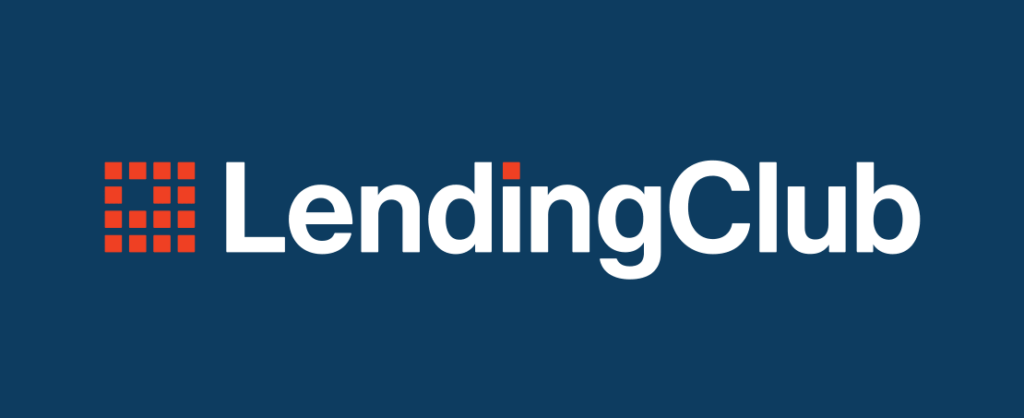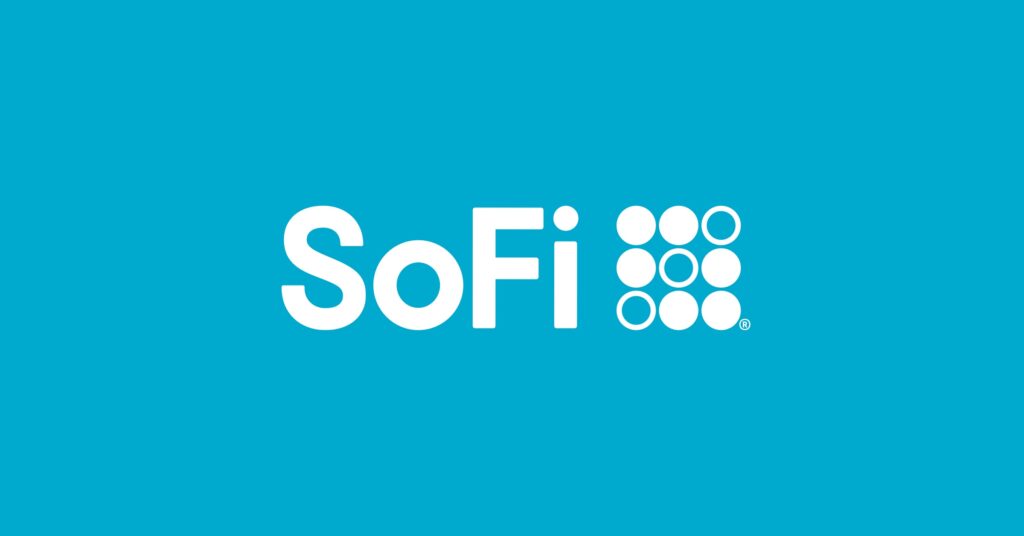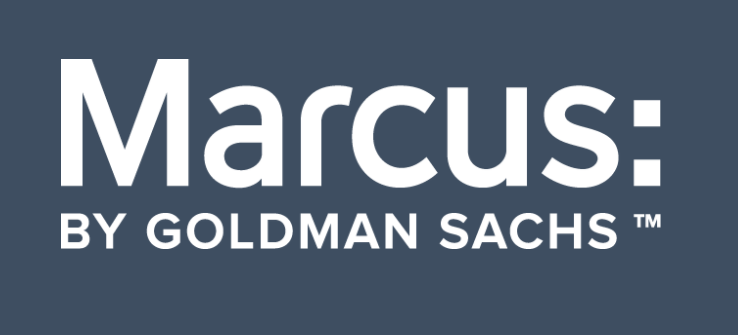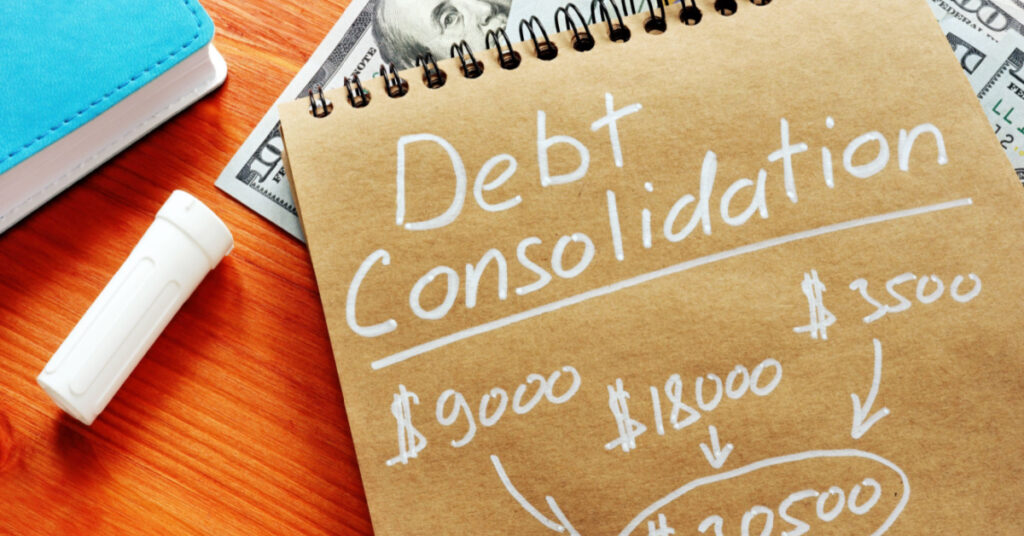Disclaimer: Credit Summit may be affiliated with some of the companies mentioned in this article. Credit Summit may make money from advertisements, or when you contact a company through our platform.
Did you know that the average American family has $6000+ in credit card debt, and the total outstanding consumer debt is $4.2 trillion? Do you have a mountain of credit card bills? Not sure what you can do to save some cash and pay those down quickly?
This guide will help you decide whether you should consolidate your debt and what options are available.
Do you qualify for debt consolidation?
Credit Summit may be able to help.
Table of Contents
Best Low-Interest Debt Consolidation Loan Options
If you have a good credit score or own a home, you’ll have the best opportunities for low-interest debt consolidation. That’s because Balance Transfer Credit Cards and home equity loans are usually the cheapest ways to consolidate your debts.
Here’s how they work:
Balance Transfer Credit Card
Credit cards have a lot of advantages. A primary one is no interest balance transfer offers. This type of balance transfer will be your best low-interest option if you can qualify because of the 0% introductory rate for up to 21 months on some cards. Credit card balance transfers won’t work for everyone; your credit score must be high enough to qualify. You can pay off your debt within the introductory period saving you a ton of money in interest. You need a minimum of 690 to qualify. You move high-interest rate credit card balances to the new 0% introductory rate card. The new card will allow you to transfer up to 80% of your total credit line. You’ll have to pay a transfer fee, usually around 3-5% of the total amount you transfer.
Pros
- 0% APR period
- Rewards and perks
- It could help you build credit if you make on-time payments
- Get out of debt faster
Cons
- Higher interest rates than many personal loans
- Most charge a balance transfer fee — typically 3% to 5% of your balance.
- Hard credit inquiry
- Eligibility could be tricky – you need a solid credit history to qualify.
- It could increase your debt if you aren’t disciplined.
If you think a balance transfer credit card would work for you, check out this video to learn more:
Home Equity Loan or Mortgage Refinance
This loan uses a percentage of equity in your home to get cash or a line of credit (HELOC) secured by your home. If you’ve made home improvements, you may be able to borrow more than you think. If you have at least 20% equity built in your home, you can refinance or take out a home equity line of credit, and your rate will be lower than what you’d pay for a debt consolidation loan unless you have a subprime rate.
Pros
- You can use it as you want
- The interest rate on a loan is tax-deductible
- It has a low-interest rate
- Higher loan amounts
- HELOCs have quick approval times
Cons
- Temptation of using your home as a piggy bank and paying the bare minimum
- The interest rate may start low, and your rate may rise versus a fixed-rate loan
- Hidden fees such as check fees
- Payment shock at the end of a draw period
- Eroding the equity in your home
- High closing costs
- Longer timeframe to pay off the loan
- The savings may be minimal
- Refinancing takes time
Debt Consolidation Loan or Personal Loan
If you don’t qualify for either of the first two options, don’t worry. There are plenty of options for debt consolidation loans. A debt consolidation loan is a personal loan that rolls several high-interest debts into one new loan, preferably with a low-interest rate.
Pros
- Fixed single monthly payments
- Longer repayment terms
- Lower interest rates
- Streamlined finances
- Quick approval
- Can use the money as you wish
- May reduce the monthly payment
- Can improve credit score
- Can save time and money
Cons
- A new loan could make your debt issues worse.
- There will be fewer options for borrowers with poor or fair credit
- They might come with fees or prepayment penalties
- There are no rewards or perks
- May pay more in interest over the life of the loan
- consolidating can cause you to lose borrower benefits associated with current loans.
Personal Loan Rates
Fixed rates on personal loans usually average between 3% to 36%, depending on your credit score. The interest rate depends on your credit score, credit history, annual income, existing debt, and whether you get a loan from a bank, credit union, or online lender.
Popular Options for Debt Consolidation Loans

LendingClub
- APR: 8.05%-35.89%
- Loan amount: $1,000 up to $40,000
- Loan terms: 24-84 months
- Credit check: Yes, soft pull for inquiry; hard pull once the loan is approved
- Minimum credit score: 600
- Application process: Most members are approved for their loan in 24 hours and receive their money from LendingClub Bank within two days.
- Prequalification: None. Apply online and find out instantly if you’re pre-approved and what the offer is
- Other noteworthy information: There’s an origination fee of 3% to 6%, no impact on your credit score for checking rates, and you can get your money on the same day your loan is approved, with no prepayment penalties.

Lightstream
- APR: 2.49% to 19.99%
- Loan amount: Up to $100,000
- Loan terms: 24-84 months
- Credit check: Yes
- Minimum credit score: 670
- Application process: Apply online and receive a response during business hours which typically won’t take longer than two business days.
- Prequalification: None
- Other noteworthy information: No origination fees, prepayment penalty, or late fees. Joint application option and autopay discount. You can get your money the same day your loan is approved.

Upstart
- APR: 4.37-35.99%
- Loan amount: $1000 up to $50,000
- Loan terms: 36-60 months
- Credit check: Yes, they make a hard inquiry after a profile submission to verify you meet their credit minimum
- Minimum credit score: 580
- Application process: Apply online. The Upstart loan timeline includes around 1 to 14 business days to get approved for an Upstart loan and another 1 to 3 business days to receive the funds after approval.
- Prequalification: Upstart says borrowers can prequalify and see their rate in five minutes. They can expect approval to take one business day.
- Other noteworthy information: No prepayment penalty, origination fee that can be up to 8% of the loan amount, no mobile app, and no co-signed, joint, or secured loans offered. The minimum income requirement is $12,000.

Discover
- APR: 12.24%-23.24%
- Loan amount: $2,500- $35,000
- Loan terms: Up to 18 months on balance transfers
- Credit check: Yes, the Discover it® Secured Credit Card will do a hard pull. You can apply for it with bad credit, though. You can prequalify for the Discover it Secured Credit Card on Discover’s prequalification page, which will not affect your credit score as it will be a soft pull.
- Minimum credit score: 640+ for most Discover cards. Some have no minimum credit score but are aimed at consumers with a 670 or above.
- Application process: You can apply online or by phone. Once you submit your Discover card application, you may get approved instantly or have to wait 7-10 business days for a decision.
- Prequalification: Yes, you can see if you are pre-approved without harm to your credit.
- Other noteworthy information: $0 Annual Fee. 5% cashback on rotating bonus categories (up to $1,500 in spending per quarter) each quarter you activate. 1% back on everything else. 0% intro APR on Purchases for six months.

Sofi
- APR: 5.74%-35.99%
- Loan amount: $5.000 up to $100,000
- Loan terms: 24 to 60 months
- Credit check: Yes, a hard credit pull, which may impact your credit score, is required if you apply for a SoFi product after being prequalified.
- Minimum credit score: 680
- Application process: Their loan applications begin our initial review within one business day, and most of our applications are completed within two business. The application process is completed entirely online.
- Prequalification: Yes, online with a soft pull.
- Other noteworthy information: low rates, no origination fees, no prepayment fees, or other “hidden fees,” You can view rates in as little as 60 seconds. You have access to customer support seven days a week.

Marcus by Goldman Sachs
- APR: 6.99%-19.99%
- Loan amount: $3,500-$40,000
- Loan terms: 3 to 6 years
- Credit check: Upon approval, you will be able to review your options, including the possible fixed monthly payments and what the APR might be. Before finalization, Marcus will do a “hard” credit check.
- Minimum credit score: 660
- Application process: The Marcus approval process can take less than 24 hours. Upon approval, it typically takes between one and four days after a borrower’s bank account is verified for the loan funds to hit their account.
- Prequalification: Yes, which won’t affect your credit score.
- Other noteworthy information: Discount when enrolled in autopay. You may be required to have some of your funds sent directly to creditors to pay down certain types of unsecured debt.
What is a Debt Consolidation Loan?
A debt consolidation loan consolidates, or combines, your various debts under a single account.
Debt consolidation can be used to consolidate the following:
- Payday loans
- Medical bills
- Credit card debt
- Private student loans
- Personal lines of credit
- Unsecured personal loans
How Do I Apply for a Debt Consolidation Loan?
If you decide to get a personal loan for debt consolidation, follow these four steps:
Check Your Credit Report
It’s a good idea to check before applying for credit. You can help make sure there aren’t any problems that could make it challenging to get approved for a new loan or credit account. It also gives you a chance to detect any inaccurate or incomplete information that could negatively affect your scores.
Read more: How to Get a Free Credit Report
Calculate Your Debt-to-Income Ratio and Learn What Kind of Debt Payments You Can Afford
With your credit report in hand, you will be able to calculate what you owe versus how much you earn each month. A ratio of no more than 28% on the front end and 36% on the back end is considered good.
Compare Lenders
Applying to multiple lenders allows borrowers to vie for your business and get a better rate or deal. Applying to multiple lenders lets you compare rates and fees, but it can impact your credit report and score due to numerous credit inquiries. Soft inquiries should not affect your credit score.
Complete the Application
Applications can be made online or in person.
The time for loan approval can vary:
- Online lenders: Five business days or less
- Banks and credit unions: Up to seven business days
Loan funding can be as soon as the next business day after approval for your application.
Use the Funds to Pay Off Your Other Debts
As tempting as it may seem to go on a vacation or buy that big screen tv you’ve been wanting, resist the temptation to use the funds other than to pay off your other high-interest debt.
What’s a Low APR for a Debt Consolidation Loan?
The interest rates are typically expressed as a yearly rate for credit cards. The interest rate is called the annual percentage rate (APR). The better your score, the lower your APR or interest rate, and the people with the best credit scores will get the lowest rates.
LendingTree’s average debt consolidation interest rates by credit score:
- 720 or above: 15.85%
- 680-719: 21.37%
- 660-679: 24.45%
- 620-639: 28.19%
- 580-619: 30.66%
- 560-579: 35.02%
- Below 560: 35.13%
Pros and Cons of Debt Consolidation
Pros
- It allows you to combine multiple high-interest debts into one monthly payment.
- You may save money on interest.
- They could lower your payment if you extend your repayment term
- One loan payment and due date means less risk of late fees
- Consolidation could help your credit score
- If you pay off revolving credit lines (like credit cards or lines of credit), you will lower your credit utilization ratio.
Cons
- You’ll have limited options if you have poor credit
- Qualifying can be tricky: Need excellent credit or good credit
- The loans might come with origination fees
- Consolidation could lead to even more debt if you aren’t disciplined.
- You might not be getting the best interest rate if your score is below 700
- Hard credit pull can bring your score down
- Possibility of losing any collateral you put up
How Much Will the Loan Cost?
Knowing how much you can afford to pay each month is vital to erasing your current high-interest debt and if debt consolidation is right for you.
Fill in your outstanding loan amounts, credit card balances, and other debt. Then see what the monthly payment would be with a consolidated loan. Try adjusting the terms, loan types, or rates until you find a debt consolidation plan that fits your goals and budget.
Can I Get a Debt Consolidation Loan If I Have a Low Credit Score?
Some lenders offer personal loans for borrowers with credit scores below 700, but you’ll pay higher interest rates. To qualify for a debt consolidation loan, you often need to be in the mid-600 range, although some bad-credit lenders may accept scores as low as 580.
Apply with a Co-Signer
Applying with a cosigner is another option for a workaround if you cannot get a loan. If you do not make the payments, they can request this from your cosigner. You will need a cosigner with solid credit for banks to be less nervous about lending to you.
What is the Difference Between Debt Relief and Debt Consolidation?
Debt Consolidation
A personal loan pays off your debt, leaving you with one loan and a single payment to manage. It helps cut the total number of creditors you owe.
Debt Relief
There are a few types of debt relief programs available.
Debt Management Plans: Debt management companies are nonprofits that negotiate for reduced interest rates or have fees waived on your behalf. You make a single payment each month to the credit counseling agency, distributing it among your creditors. Credit counselors and credit card companies have longstanding agreements to help debt management clients. Your credit card accounts will be closed, and, in most cases, you’ll have to live without credit cards until you complete the plan. It’s important to note that many people do not finish the program.
Debt Settlement: Debt settlement programs typically are offered by for-profit companies and involve the company negotiating with your creditors to allow you to pay a “settlement” to resolve your debt. The settlement is another word for a lump sum that’s less than the total amount you owe. You pay a monthly fee to the settlement company. You need to be behind on your payments to qualify and be wary of debt settlement companies that charge upfront fees to settle your debt.
The Bottom Line
Buried under a mountain of debt is no fun for anyone. The options presented here may lower your interest rate and reduce your debt faster, so you sleep better at night.
FAQs
While you theoretically don’t have to have a traditional bank account to qualify for a loan, it will make accessing the funds much faster and easier. Once you receive your debt consolidation loan, the lender will deposit a lump sum into your bank account.
Most credit unions have strict requirements for membership. Alliant Credit Union, Pentagon Federal Credit Union, and Connexus Credit Union offer the best credit union debt consolidation loans. They have APRs below 8%, provide loan amounts up to $20,000 to $50,000, and are available to the general public.
Debt consolidation loans can hurt your credit, but it’s only temporary and only in the beginning. When consolidating debt and shopping around, your credit is checked, lowering your credit score. Consolidating multiple accounts into one loan can also lower your credit utilization ratio, hurting your score.

